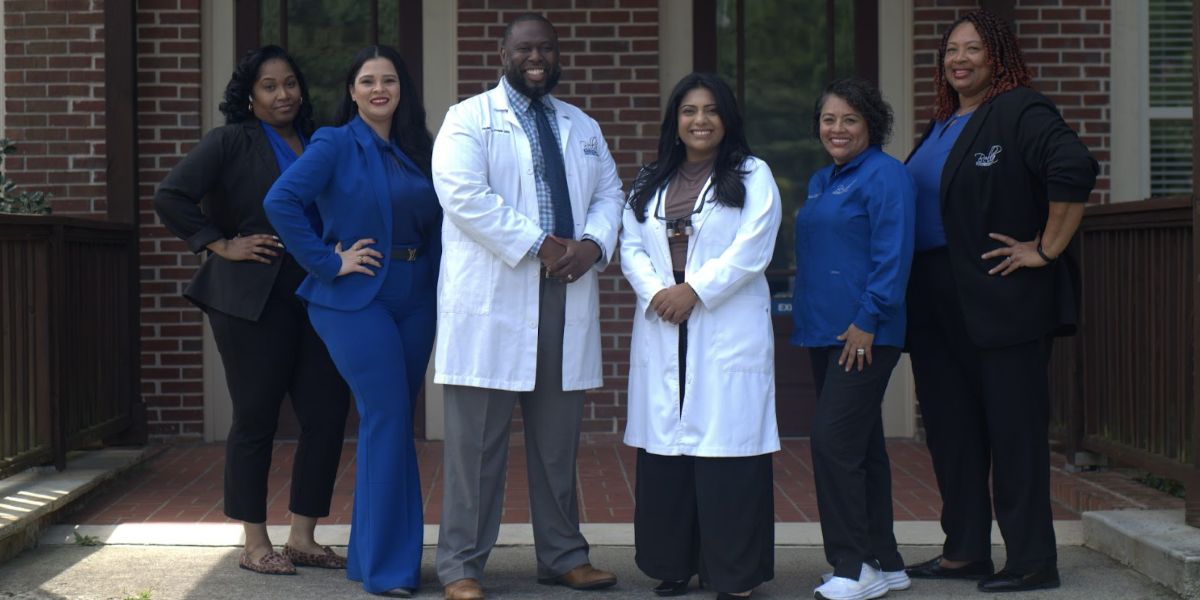By: Shawn Mars
In a field often marked by technical jargon and clinical detachment, Dr. Roderick Cooper is reimagining what it means to be a dentist. Rather than treating patients as passive recipients of care, he believes in creating partnerships rooted in trust, communication, and empowerment. “My style is very much a co-diagnosis and a co-treatment plan,” he explains. “You’re really the boss of what we’re doing. My role is to give you options, encourage you toward the best outcome, but ultimately to listen.” That patient-first approach has not only set him apart but has also established him as a trusted voice within the industry.
Central to his philosophy is the ability to make complex medical concepts relatable. Instead of overwhelming patients with technical explanations, he breaks procedures down into simple, everyday analogies. A root canal, for example, becomes “removing the bad stuff, cleaning it well, and putting good stuff back in,” a description that cuts through fear and confusion. By drawing parallels to cars, sports, or even hairstyling, Dr. Cooper ensures that patients understand not only the science but also the implications of their care. “People want to know if it will hurt, how long it will last, and what it will cost,” he says. “It’s about making sure they feel informed and comfortable.”
This commitment to communication extends to debunking some of the most common myths in dentistry. The idea that root canals are inherently painful, he stresses, is far from reality. With modern anesthesia, the procedure can be as comfortable as any other. Similarly, the widespread belief that everyone needs a cleaning every six months is misleading; timing should be based on individual needs, with some requiring care every three or four months instead. And perhaps most importantly, the notion that losing teeth is an inevitable part of aging is simply false. “With proper care, you can keep your teeth for life,” he affirms. He also dispels the misconception that root canals cause other health issues, clarifying that untreated infections are the real risk to systemic health.
Beyond his patient interactions, Dr. Cooper is equally passionate about innovation. Advances in 3D imaging, CT scans, and implant technology are transforming dentistry, enabling practitioners to offer solutions that would have been unthinkable a generation ago. Where older patients may have once resigned themselves to dentures, today many can benefit from implants and bridges that restore both function and confidence. “Technology and training allow us to provide options right away, improving efficiency and outcomes for patients,” he notes.
Balancing his roles as provider, educator, and mentor comes naturally to Dr. Cooper, who views these dimensions as extensions of one another. His enthusiasm for teaching is fueled by the belief that sharing knowledge strengthens the profession as a whole. Looking ahead, he envisions expanding his influence by building mentorship programs and practices that empower the next generation of dental professionals to excel. “I want to impact the next generation through education and relationships,” he says. “By giving younger practitioners the tools and confidence they need, they can go further and faster than we did.”
For Dr. Cooper, dentistry is more than treating teeth, it’s about reshaping experiences, dismantling fears, and creating a culture of trust. Through education, innovation, and mentorship, he is not only changing how patients see their dentist but also how the next generation of dentists will see their patients. “It’s about building something together,” he reflects. “That’s how you transform dentistry and people’s lives.”
Disclaimer: This article is intended for informational purposes only and should not be construed as medical advice. The content provided is general in nature and may not apply to individual health conditions. For personalized guidance or specific medical concerns, it is important to consult with a qualified healthcare professional.









